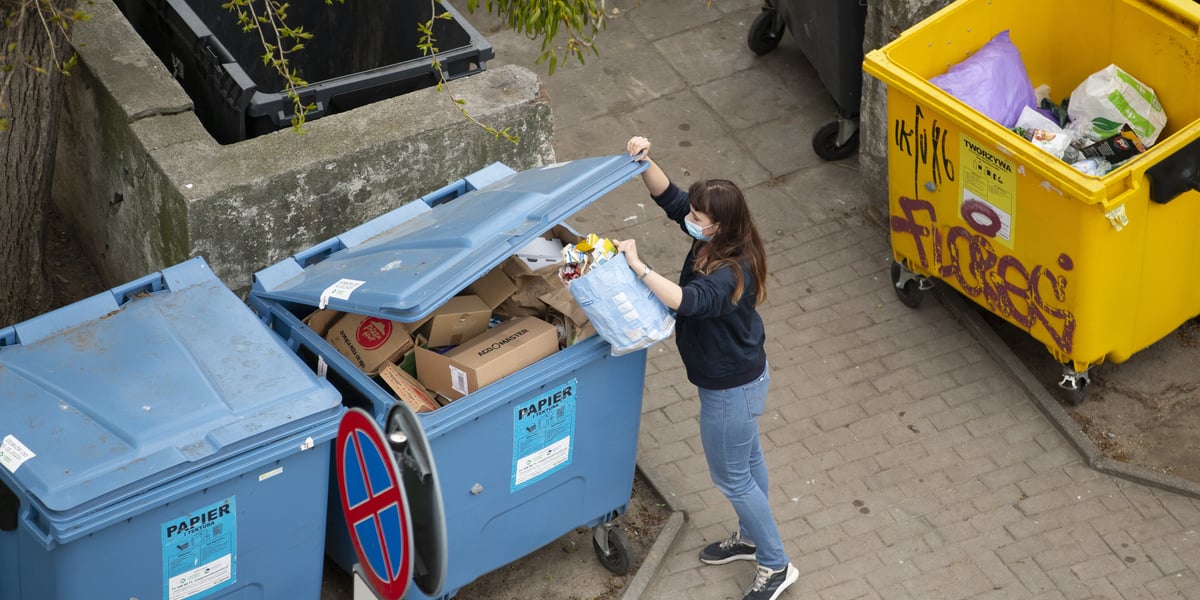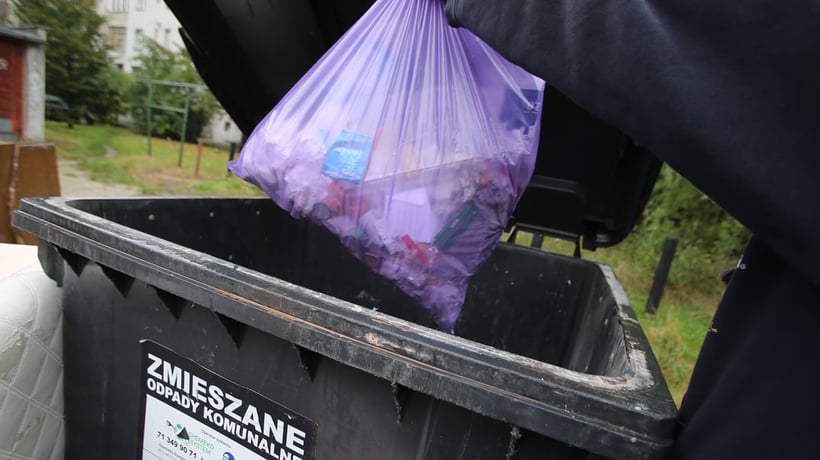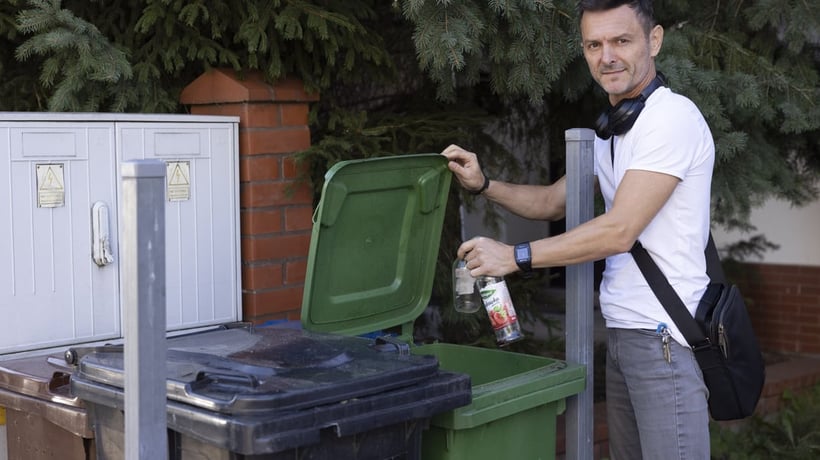According to the Wroclaw City Office, an average resident of Wroclaw produces around half a tonne of waste each year. ‘More than half of this is mixed waste, and, unfortunately, it includes many raw materials that should be recycled,’ explains Piotr Krejner, spokesman for Ekosystem.
A study conducted by the Wroclaw University of Technology shows the scale of the problem of inappropriate segregation. As much as 68% of the contents of mixed waste bins are raw materials that should end up in other bins.
Recycling requirements and rules
The European Union has put Poland – and, consequently, individual municipalities – under an obligation to achieve specific recycling levels. For Wroclaw, this means that 35% of waste will have to be processed in 2023, 45% in 2024 and as much as 55% in 2025.
Piotr Krejner, spokesperson for Ekosystem: ‘These figures may seem abstract, but they have a direct impact on our wallets and the quality of life in the city. If we do not reach the required levels, this may result in heavy fines for the city. This, in turn, could mean increases in waste disposal fees for all residents.
According to the legal provisions, property owners must separate their waste into at least five fractions:
- mixed (black container),
- paper (blue container),
- plastics and metals (yellow container),
- glass (green container),
- bio-waste (brown container).
‘We cannot assume that someone will sort our rubbish for us. Recovering raw materials from mixed waste is very difficult, time-consuming and costly,’ stresses Krejner.
Consequences of non-segregation?
If incorrect segregation is found, the waste collection company will mark the container with a special ‘Eko-Alarm’ sticker. This fact will be notified to the Department of Taxes and Fees of the Wroclaw City Office and to the owner or administrator of the property. Receipt of this sticker may result in a double fee in the future.
Anna Walenciejczyk, Director of the Department of Taxes and Fees of the Wroclaw City Office: The increased charge will only be determined for the month(s) in which the lack of separate collection of municipal waste was ascertained. On the basis of received information about the lack of proper segregation, tax proceedings are initiated, ending in a decision to increase the amount of the municipal waste management fee.
The residents who do not comply with the rules of segregation may have to pay double fees:
- Standard rate: PLN 41.24/month per person
- Increased rate: PLN 82.48/month per person
Property owners have the right to appeal against the decision to increase the fee. An appeal must be submitted within 14 days from the receipt of the decision to the Local Government Appeal Board via Mayor of Wroclaw.
The obligation to segregate waste and the consequences of failure to do so are regulated by:
- Resolution No. LXVIII/1769/23 of the City Council of Wroclaw of 25th May 2023.
- Act of 13th September 1996 on the Maintenance of Cleanliness and Order in Municipalities.
How do other cities deal with the problem?
Data from other Polish cities show different approaches to the enforcement of waste segregation. For example, the Brwinów Commune in the Masovia region applies some of the highest penalty rates in the country – it charges a fee of PLN 99 per inhabitant for the collection of improperly segregated waste, which is three times the basic rate.
In Warsaw, on the other hand, the double basic fee is applied. Last year, the residents of one of the co-operatives in the Warsaw district of Ursynów saw how serious the financial consequences can be, with a fine of PLN 87,000 for incorrect segregation.
In Gdańsk, the fee is also twice as big. It is imposed on the owner of a single-family house or on entire communities or co-operatives if the waste collection company finds out that the rubbish in the bins is not properly sorted. Although many people do not like it, such is the law, and additional charges have been imposed since 2020.
‘From January 2024 till 15th October 2024, we issued 93 decisions on increased municipal waste management fees on the average every month. Decisions are issued for a given month or for a few months,’ explains Jędrzej Sieliwończyk from the Gdańsk magistrate.






